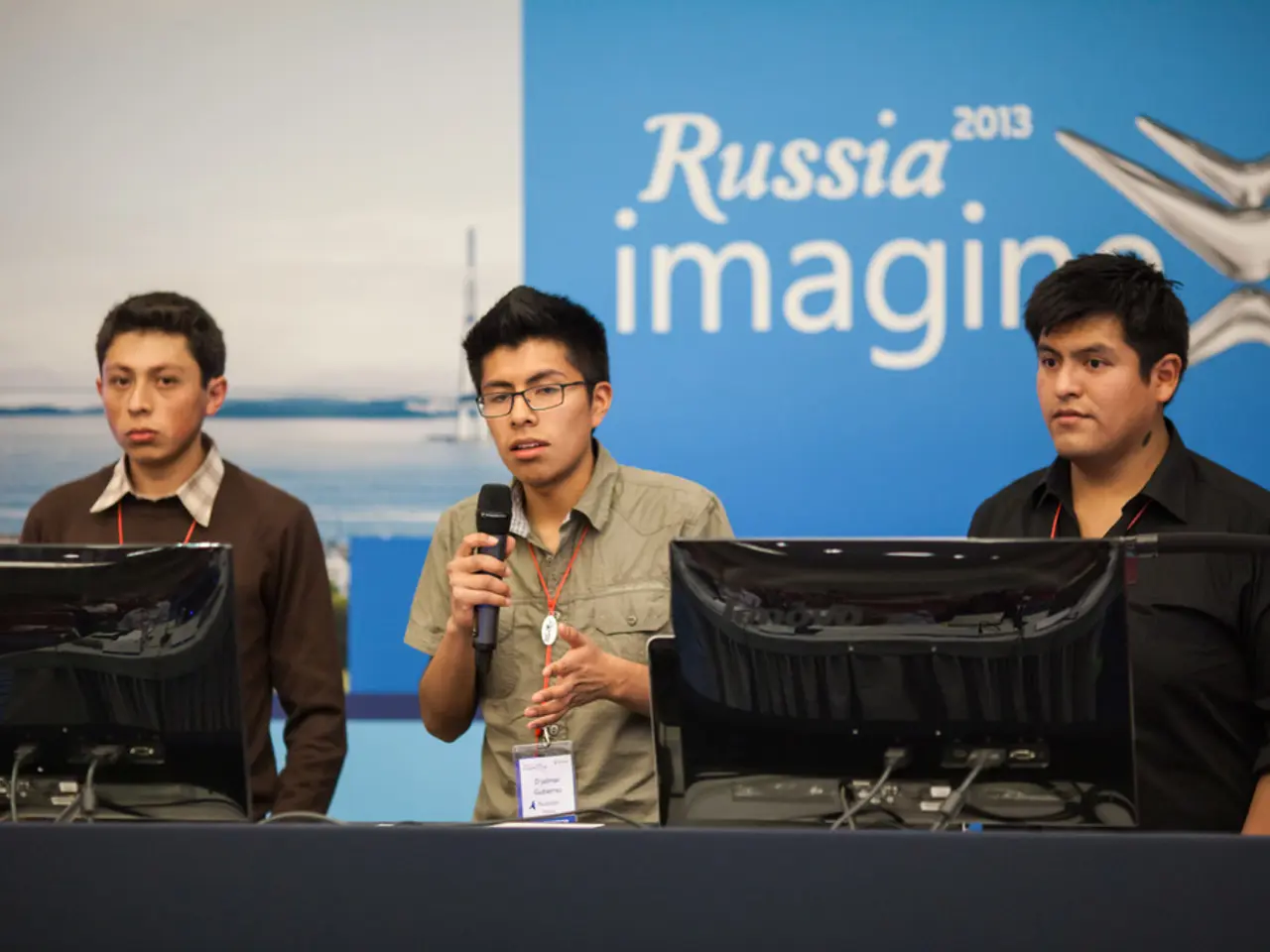Trump looks forward to the CEO's return to the White House shortly.
In a significant turn of events, Nvidia has reached an agreement with the U.S. government to export its H20 chips to China, marking the reversal of a previous federal ban that was imposed due to national security concerns.
Under the terms of the agreement, Nvidia will pay 15 percent of its revenue from sales in China directly to the U.S. government. This deal, which was announced in late July 2025, has cast doubt on the original security justifications for the export controls, suggesting that the administration leveraged national security claims for financial gain.
The H20 chip, a lower-performing chip designed to meet export regulations, will now be allowed for sale in China. This arrangement raises concerns about the precedent it sets, as it involves the executive branch making deals that could potentially override congressional authority, setting the stage for similar compromises in other sectors or with other countries.
Despite the controversy, Nvidia's stock did not significantly change following the agreement. The company's investors remain on board, with the deal seen as a first relief for Nvidia after months of uncertainty.
The Chinese market has been effectively closed to the H20 since April. With this deal, the months of uncertainty are now over for Nvidia.
It is worth noting that the H20 chip is a less powerful version of the H100 and H200 chips used in the U.S. Modern chips like Nvidia's current "Blackwell" chip are excluded from export, unless their performance is reduced by 30 to 50 percent.
Additional discussions indicate that Nvidia is already working on a follow-up chip for China, with the Trump Administration continuing to play a role in these export considerations. However, the core details of the deal focus on the current H20 chip export permission tied to the 15 percent revenue sharing with the U.S. government.
President Donald Trump initially demanded 20 percent but agreed to a lower rate following negotiations with Nvidia's CEO Jensen Huang. Mr. Bernd Foertsch, the management and majority shareholder of the publisher Boersenmedien AG, has entered into direct and indirect positions in the financial instruments mentioned in this publication or related derivatives, which could benefit from the potential price development resulting from this publication.
[1] Source: The Wall Street Journal, August 2025 [2] Source: Reuters, August 2025
- The agreement between Nvidia and the U.S. government, which involves a 15% revenue share from Nvidia's sales in China, has sparked discussions in the realm of politics and policy-and-legislation, as it questions the executive branch's authority to bypass congressional control and make deals that could set a dangerous precedent.
- The rise in controversy over Nvidia's deal with the U.S. government, where the company will pay 15% of its revenue from sales in China to the government, has echoed in the general news, with many questioning the implications of this deal and its impact on war-and-conflicts and international diplomacy.





